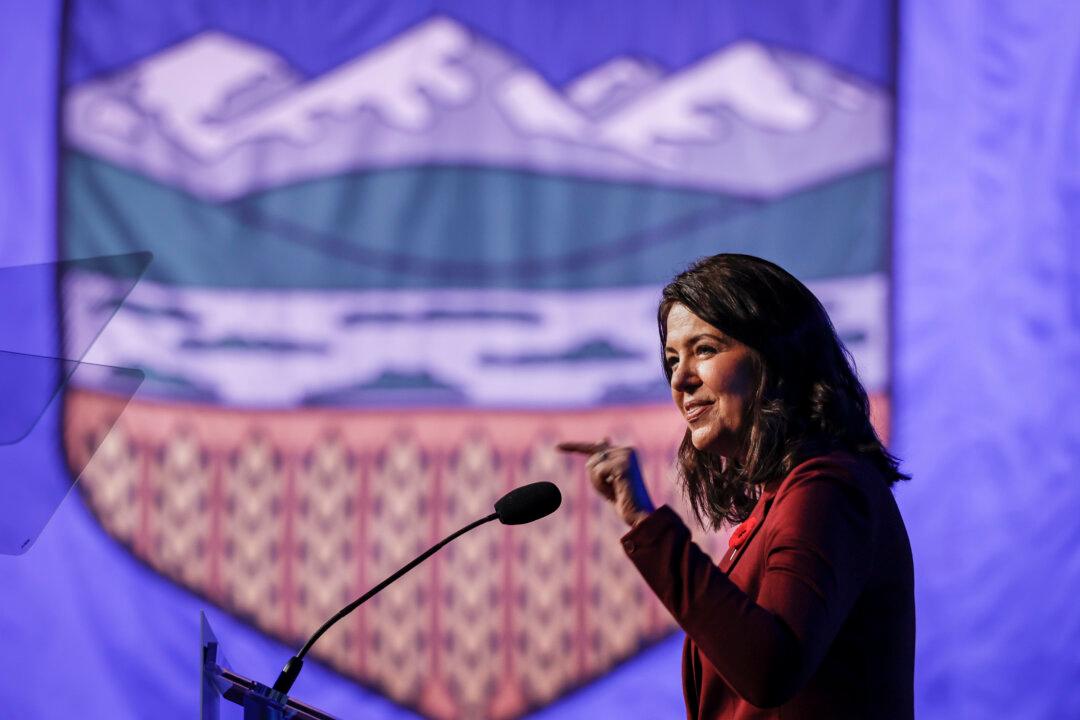Alberta Premier Danielle Smith has confirmed she will invoke the province’s Sovereignty Act on Nov. 27 to protect its power companies from Ottawa’s Clean Electricity Regulations (CER).
Speaking at a morning radio show on Nov. 25, Ms, Smith said the federal plan to impose a net-zero electricity system by 2035 is not only “unachievable” but also risks wrecking Alberta’s power grid.





